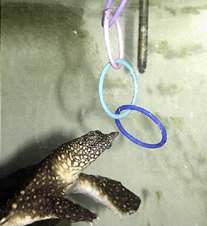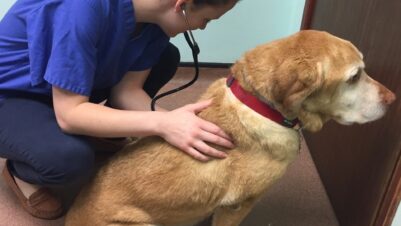Veterinary behavioural medicine (VBM), otherwise known as clinical behavioural medicine of animals, is considered a relatively new discipline within the branch of veterinary internal medicine. The field of veterinary behavioural medicine occupies itself with the diagnosis, treatment and prevention of behaviour disorders in animals.
Animal behaviour problems are a major welfare concern as they are one of the primary reasons animals are relinquished and veterinarians are requested to euthanise animals. Welfare is further compromised if these animals are also subjected to inaccurate diagnoses or flawed treatment strategies – even if correctly diagnosed. As such, a significant welfare problem becomes apparent and the need for the development of VBM within the veterinary profession is serious.
Causes of behaviour problems
Behaviour problems may have various and sometimes multiple causes or predisposing factors. Obviously, genetics, the environment of the animal and the presence of non-behaviour disorder related disease processes could play a role. Let’s explore some other examples.
There are a number of reasons why dogs may bite people, for example:
1. They’ve been inadvertently rewarded for biting or nipping as a puppy (such as shooing the dog or trying to punish it but actually causing it more excitement, or petting or praising it at the wrong time);
2. They feel a need to defend themselves if they feel threatened, which sometimes occurs at the vets and in the presence of over-zealous children; or
3. They have an emotional regulation disorder such as impulse control aggression.
The latter cause, impulse control aggression, describes truly pathological behaviour. Dogs with this condition may develop it in spite of correct human handling, socialisation and the provision of an optimal environment and routine. Thus, it is often not the owner’s fault at all. This condition is commonly misdiagnosed and confused with dominance aggression (which is no longer considered a correct veterinary diagnosis) or American Cocker syndrome. Incorrect handling of any of the issues mentioned above can lead to the problem worsening and people being seriously bitten.
The veterinary practitioner must be aware that behaviour disorders can occur in animals and are a serious welfare concern. Like in people, they are caused by chemical imbalances in the brain. The literature on these mental health problems in animals deals mainly with dogs and cats, but there is more and more evidence of behaviour disorders in other species.
The veterinary practitioner must be aware that behaviour disorders can occur in animals and are a serious welfare concern
Diagnosing behaviour problems
Veterinary behaviour specialists (VBS) rely on measuring behaviour through direct and indirect observation, questionnaires and consultation for patient monitoring. This provides detailed phenotypic descriptions thought to reflect the emotional state of the animal, as well as other information. At a research level, brain scans are available in some countries to quantify chemical imbalances in the brain, which may be discrete enough to inform diagnoses of neuropathology.
Behaviour problems in horses
Horses are also often relinquished, euthanised or sent to slaughter as a result of apparently intractable behaviour problems. Most likely, as is the case in dogs and cats, these problems would not be that difficult for a VBS to diagnose and treat. Horses often present for aggression problems, anxiety disorders and repetitive movement disorders (RMDs) such as weaving, crib-biting and head-shaking.
RMDs may develop in normal horses if they are subject to an inappropriate environment and/or feeding. If allowed to further develop, these abnormal behaviours may become emancipated from their original cause and may become difficult to treat even with the provision of a suitable environment and feeding substrates and strategies. This is because the brain becomes damaged and treatment with psychopharmacotherapeutic and other neurotropic strategies in addition to environmental management may be warranted. RMDs are also described in other species such as dogs, cats, cattle, goats, pigs, primates, rodents and lagomorphs.
Although a detailed review on distinguishing management and training problems from true behaviour pathologies goes beyond the scope of this introductory article, I hope to convince the veterinary practitioner – regardless of his or her species of interest – that veterinary behavioural medicine is as important as other areas of internal medicine when considering animal welfare.
Veterinary practitioners serious about animal welfare must have a sound working knowledge of the normal behaviour of their species of interest and be able to distinguish between pathological and non-pathological behaviour. When they consider their own diagnostic and treatment skills to be inadequate to address a particular behaviour problem, they are duty-bound to refer that animal to someone who can help it, just as they would refer a complicated fracture, surgical or internal medicine case to a veterinary specialist in the relevant field.
In my own practice, I see behaviour patients on a weekly basis: typically, dogs, cats and horses and sometimes other species such as laboratory animals or animals living in zoos. Specialist treatment of different species requires a sound working knowledge of the normal behaviour and likely neurobiology of that species.







